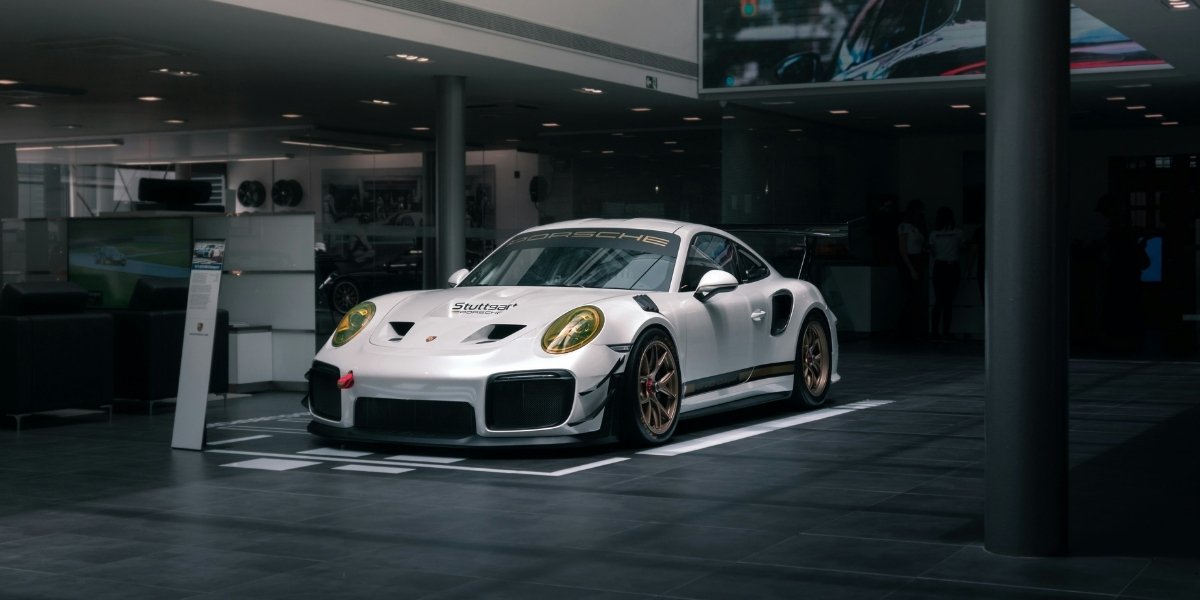The promise of luxury electric vehicles (EVs) was once seen as the perfect blend of cutting-edge technology and timeless prestige. Brands like Porsche, Mercedes, and Ferrari positioned their EVs as aspirational products, offering high performance, design, and exclusivity, along with sustainability. However, by late 2025, cracks have started to appear in this vision.
Reports indicate that Porsche saw a €966 million loss in Q3 2025, a significant drop from previous profits. Meanwhile, Mercedes also reported weaker-than-expected results for the same period. Analysts point out that, despite their engineering excellence, luxury EVs are struggling to capture market share as consumers turn toward more affordable and practical options. These developments have raised questions about whether luxury EVs can maintain their appeal in an increasingly competitive and price-conscious market.
The real question now is whether luxury EVs can adapt. Are they facing a decline due to pricing, consumer skepticism, or broader economic shifts? This has sparked significant discussions across automotive forums, financial outlets, and social media.
Porsche’s Harsh Reality Check
Porsche’s financial results for Q3 2025 shocked the industry. The company, once synonymous with luxury performance, posted a €966 million loss, marking a drastic decline in operating profit. This downturn is attributed to various factors, including faltering demand in China, the imposition of U.S. tariffs, and weaker-than-expected sales of its premium EV models.
For a brand renowned for its high-end sports cars, this loss raises questions about whether prestige alone can sustain interest in electric models. Consumers appear less willing to pay premium prices when mass-market EVs deliver similar range and features at lower costs.
Porsche’s struggles highlight a larger trend in the luxury EV market. Even with a long-standing reputation for quality and engineering prowess, the brand is facing challenges where exclusivity may no longer guarantee success.
Mercedes and Ferrari Under Pressure
Mercedes-Benz, another powerhouse in the luxury market, reported weak quarterly results in 2025, reflecting the same pressures that Porsche faced. Despite launching ambitious electric models, demand has softened, forcing the company to rethink its strategy. The decline in sales, particularly in key markets like China and the U.S., suggests that the luxury EV market might not be as resilient as expected.
Ferrari, known for its exclusive sports cars, unveiled its first fully electric model, the Elettrica, in October 2025. While the debut created excitement, some analysts caution that Ferrari’s move into the EV market may be more symbolic than transformative. The brand has long relied on exclusivity and performance, and it remains to be seen whether its electric car can generate the same kind of cultural significance as its gasoline-powered predecessors.
Both Mercedes and Ferrari are grappling with a delicate balance between maintaining their legacies of exclusivity while embracing the need for innovation in a rapidly changing automotive landscape. The challenge now is whether these brands can redefine themselves for a new generation of car buyers without alienating their traditional customer base.
Why Luxury EVs Struggle
Several factors explain why luxury EVs are struggling to gain traction. Pricing remains a major barrier. Luxury EVs often cost significantly more than mass-market alternatives, limiting their appeal to a niche audience. With a premium price tag, many buyers are asking whether the higher cost justifies the additional features when similar performance is available at lower prices.

Another issue is the technology itself. While EV battery technology has made strides, it has not advanced enough to fully justify the higher premiums that luxury brands charge for their models. Battery life, charging time, and overall cost of ownership remain concerns, particularly as new buyers become more cost-conscious.
Finally, consumer perceptions have shifted. In the past, luxury buyers prioritized exclusivity above all else, but today, many consumers now prioritize practicality, affordability, and reliability. Sustainability has become a baseline expectation, not an added luxury feature. This shift in consumer values has made it harder for luxury automakers to justify the high price points of their electric models.
The Global EV Market Contrast
While luxury EVs face difficulties, the broader electric vehicle market is thriving. Affordable models from brands like BYD, Tesla, and Hyundai are capturing a growing share of the market. These brands are providing practical, efficient solutions for everyday drivers, and their success highlights a clear contrast with the challenges faced by luxury automakers.
The demand for affordable EVs is only expected to grow, as many consumers prioritize value, range, and practicality over brand prestige. The popularity of mass-market EVs suggests that consumers are more interested in the benefits of electric vehicles rather than the exclusivity associated with luxury models.
For luxury automakers, the challenge is clear: they must find a way to adapt to these new market realities. Whether this means shifting toward hybrid models, introducing lower-priced electric vehicles, or innovating with new technologies remains to be seen. Luxury brands will have to rethink their strategies to stay relevant in an evolving industry.
The Changing Landscape of Luxury EVs
Luxury EVs were once marketed as symbols of progress, combining exclusivity with environmental responsibility. However, the current struggles in the market suggest that the narrative surrounding luxury EVs is changing. Many buyers now question whether the high price tag of luxury electric vehicles is truly justified, especially when more affordable options are available.
The shift in consumer expectations presents a challenge for luxury brands, which have long relied on their image of exclusivity. While owning a Porsche or Ferrari has traditionally been a status symbol, the demand for practicality and accessibility is reshaping the value proposition of these brands. Luxury automakers now face the difficult task of reinventing their identity for a new era.
The question remains: can these brands retain their aspirational appeal while embracing broader accessibility? Or will they struggle to maintain relevance in a market that increasingly values affordability and practicality?
The future of luxury EVs is uncertain. Some analysts predict that luxury automakers will pivot toward hybrids or limited-edition EVs in order to preserve exclusivity. Others argue that the current crisis signals a broader transformation in the industry, where luxury automakers must embrace accessibility to survive in an increasingly competitive market.
For consumers, the conversation is about value. Will they continue to pay a premium for prestige, or will practicality and affordability dominate their decisions? How luxury brands adapt to these changing preferences will determine their future in the EV market.
Ultimately, this crisis is about more than profits. It reflects a shift in how society views luxury, sustainability, and consumer priorities. The future of luxury EVs will depend on whether these brands can find a balance between innovation, exclusivity, and accessibility.
A Spark in Question
The story of luxury electric vehicles in 2025 is one of ambition colliding with reality. Porsche’s billion-dollar loss, Mercedes’ weak quarter, and Ferrari’s cautious debut reveal the challenges facing prestige automakers in the EV market.
The question now is whether luxury EVs can adapt to the changing market demands or if they will fade as relics of a bygone era. As the industry evolves, luxury automakers must decide whether they can maintain their status while embracing the shift toward more accessible, practical options.
In the end, luxury EVs are not just vehicles, they are symbols of identity, aspiration, and progress. Whether they regain their spark depends not only on engineering but on how they redefine their place in the changing automotive world.
Disclaimer: The information provided in this article reflects current trends and analysis. The automotive industry is rapidly evolving, and product availability, pricing, and consumer preferences are subject to change. Always consult official sources and industry reports for the most accurate and up-to-date information.

















